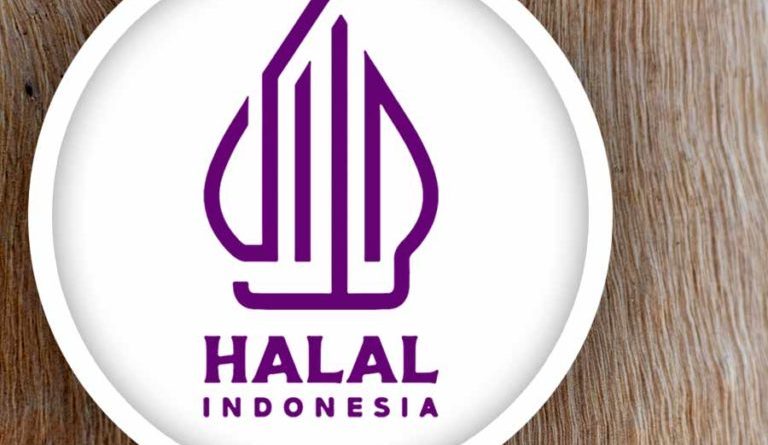Halal Self Declare: Can You Guarantee Halal Products?
By: Ir. Elvina A. Rahayu, MP*
In an online talk show, I was asked a question why the government (BPJPH) applies self-declare (SD)? What are the positive and negative impacts for Muslim consumers? To answer this, there are 3 points related to SD that need to be observed along with the accompanying rules.
To be grateful, BPJPH some time ago launched a program of 10 million certified products through the SD scheme as an acceleration program towards mandatory halal certification of Mamin products, RPH/RPU and services by 2024.
The number of MSEs in Indonesia is quite large, more than 96 percent of micro business actors and 1.2 percent of small business actors. From data from the Ministry of Cooperatives, the number of MSEs is around 64.1 million, a large number and an effort that is not easy to achieve the halal certificate target in 2024. This may be the basis for why BPJPH implements SD in addition to the regular halal certification scheme through an audit route at the Halal Inspection Institute ( LPH).
Skema Self Declare?
From a juridical perspective, the BPJPH SD scheme is based on JPH Law no. 33-2014, CK Law No. 11-2020, PP no. 39-2021, PMA No.20-2021, Kepkaban No.135-2021 and No. 33-2022.
There are 3 SD points that we need to criticize in order to answer whether this SD scheme can guarantee halal products for Muslim consumers. The first point is the basis for using Self Declaration as a halal certification scheme. If we refer to ISO 17050 concerning the Self Declaration of Conformity (SDOC), the meaning of SD is a guarantee of conformity declared by an individual or organization for the identified object against certain requirements according to the referenced declaration, as well as clarifying who is responsible for the conformity of the declaration. Declarations may change related to processes and materials, therefore the person responsible for these changes is the maker of the declaration. In the context of BPJPH-style SD, the SD process is carried out jointly between business actors and Halal Product Process (PPH) assistants.
The PPH assistant will verify the materials and PPH of the business actor, before jointly agreeing to the declaration made by the business actor. Indirectly, PPH assistants also function as consultants. Up to this stage, the activity called SD actually complies with the standard definition that is known to the public. The SD documents will be continued to the MUI meeting to obtain a halal determination which is the basis for BPJPH to issue a halal certificate. From this process, responsibility for the declaration that has been made is transferred to the MUI and BPJPH in the form of a halal determination and certificate. The question is, is the MUI willing to give a fatwa based on data from this SD process? There is no time limit for implementing the SD scheme mechanism as with the regular halal certification scheme, namely 21 days.
The second point is related to the consistency of the rules in Kepkaban No.33/2022 with article 79 paragraph 2 PP No.39/2021, SD applies to Micro and Small Business actors who meet the criteria for products that are not at risk or use materials whose halal status has been confirmed and the production process simple. Kepkaban No. 33/2022 allows the SD scheme for business actors who produce products containing animal elements on condition that they have a halal certificate. Product types and details (there are 14 product categories) in this rule are also not low risk products from a halal perspective. Why? Talking about risk from a halal perspective, when a product contains animal ingredients it cannot be categorized as low risk. This is related to the level of potential danger of haram and the probability of its occurrence. In Indonesia, in 2020 there were 2 incidents in Bandung and Tangerang where they sold meatballs made from wild boar meat for more than a year, while in 2019 in the city of Padang there was a Padang satay made from pork and has been operating for 2 years. Some of the 14 product groups in Kepkaban No.33/2022, for example flavored drinks and seasoned flour are products that are not simple from a halal perspective related to their supply chain.
The second point is related to the consistency of the rules in Kepkaban No.33/2022 with article 79 paragraph 2 PP No.39/2021, SD applies to Micro and Small Business actors who meet the criteria for products that are not at risk or use materials whose halal status has been confirmed and the production process simple. Kepkaban No. 33/2022 allows the SD scheme for business actors who produce products containing animal elements on condition that they have a halal certificate. Product types and details (there are 14 product categories) in this rule are also not low risk products from a halal perspective. Why? Talking about risk from a halal perspective, when a product contains animal ingredients it cannot be categorized as low risk. This is related to the level of potential danger of haram and the probability of its occurrence. In Indonesia, in 2020 there were 2 incidents in Bandung and Tangerang where they sold meatballs made from wild boar meat for more than a year, while in 2019 in the city of Padang there was a Padang satay made from pork and has been operating for 2 years. Some of the 14 product groups in Kepkaban No.33/2022, for example flavored drinks and seasoned flour are products that are not simple from a halal perspective related to their supply chain.
The Halal slogan is easy, very beautiful and inspiring. This convenience will occur when all infrastructure and access to obtain halal materials in the smallest quantities required by MSEs can be met, and followed by consistent supervision and law enforcement.
So, is the certification mechanism through SD beneficial for Muslim consumers? Can this SD mechanism guarantee halal products for Muslim consumers? The commandment to consume halal food is part of the obligation to carry out the sharia for Muslim consumers. The government should be able to guarantee this by considering the factors above so that the halal-haram cases that have occurred in Indonesia (halal fraud, ed) do not happen again.
*Director of Certification and International Cooperation LPH-KHT Muhammadiyah, Senior Halal Auditor, General Chair of the Association of Indonesian Halal Inspection Institutions (ALPHI).




